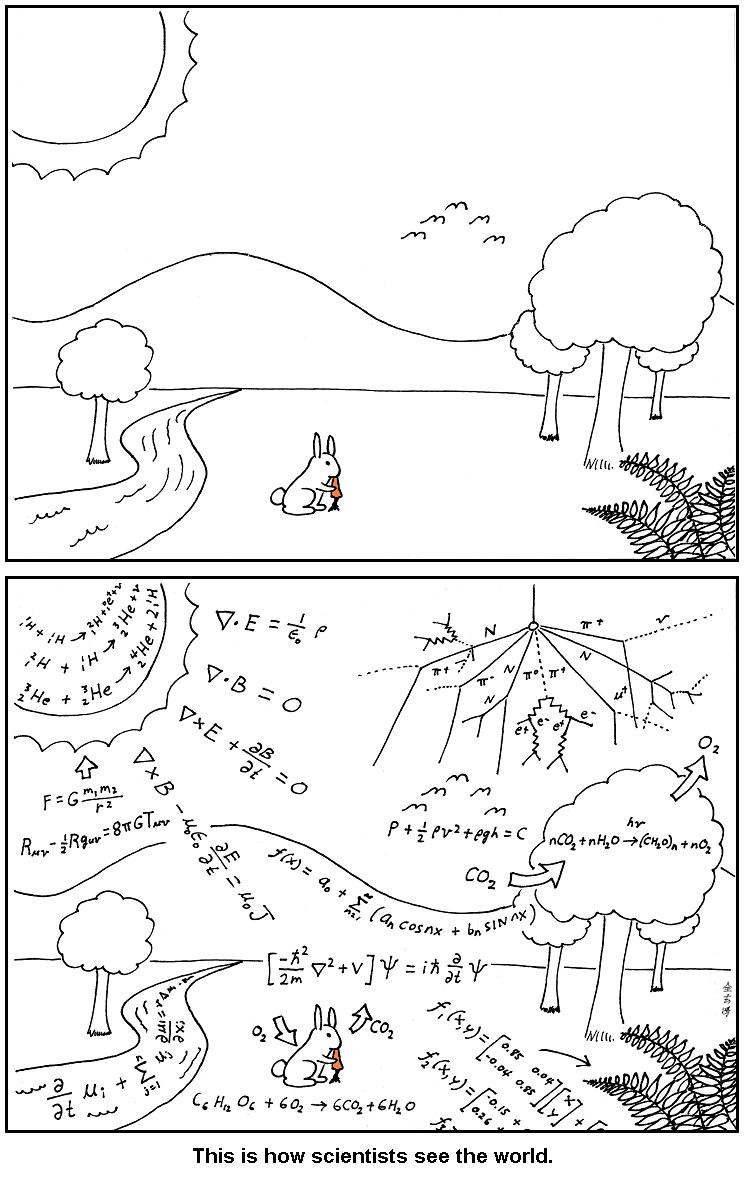Engineers Are Creative: The Whole Brain Revolution
The Right Brain Revolution by Auren Hoffman hit the front page of HackerNews and had stayed there for a couple days, and I can see why. Its presentation is superb; the layout and typography are clean, legible, and interesting; and its statement is very bold. However, I strongly disagree with the content. Hoffman argued that something it calls “systems thinking” will fall out of favor and be replaced by something it calls “creative thinking”. I will argue that its classification and characterization of these different modes of thinking are misguided. Hoffman gives examples of professions that rely solely on “systems thinking”, and I will argue that that argument mischaracterizes these professions, lacks understanding of cause and effect, and ignores blatant evidence that contradicts the the original argument.
Let’s start with something that I agree with: <blockquote> “Tomorrow’s rewards will be won by creative people who contribute new ideas.” -Hoffman </blockquote> Hoffman immediately follows it up with something I vehemently disagree with. Hoffman claims that “strong systems thinkers, logical, analytical, objective people such as computer programmers who build software, engineers who build bridges, lawyers who write contracts, and MBAs who crunch numbers” will be replaced by computers because they “take over more of the pure systems thinking”. Not only do I find this incredibly insulting, it is completely baseless. Computer programmers write software that run and control computers. The basis of this argument defies the idea of cause and effect. This argument is analagous to claiming that medicine will replace doctors. Without doctors, there would be no one to create, improve, prescribe, or administer the medicine. Likewise, computers don’t improve, maintain, or create themselves; computers are taken to new levels by computer engineers who create not only the software but also the hardware and everything in between for computers.
The claim that computers will replace the engineers, lawyers, and MBAs because these professions consist of “systems thinking” smacks of ignorance of not only the depth of these professions but also the basic functionality and limitation of computers. Professionals provide services that people need, and computers don’t intrinsically understand these needs. Computer programmers don’t intrinsically understand all these needs or how to fulfill them either. Instead, professionals can guide computer programmers to shape computers into ever increasingly more powerful tools so that professionals can use them in their crafts. The services which these professionals provide incorporate very deep fields of study, and these fields of study grow, evolve, and innovate constantly. Just like the next generation of professionals will need to be taught the previous generation’s discoveries, so too will computers need to be shaped by programmers so that their tools remain relevant. Computers have grown more and more powerful, and the demand for these professionals have not waned. The idea that computers will replace these professionals as they grow more powerful holds no merit.
Then there is erroneous divide that Hoffman places between “systems thinking” and “creative thinking”. Hoffman stated that
"Instead of making a resolution to learn how to code in 2013, you might make a resolution to learn how to draw."
I admit that some - maybe many - educators do a poor job of teaching logical and analytical fields such as mathematics, physics computer science, and etc. I would argue that educators sometimes do a poor job of teaching the artistic subjects as well. When the right educators and students mingle, however, magic happens, whether the subject is artistic or analytical. Hoffman continued, saying that
"After a few months of lessons you might begin to observe the world differently seeing details, light and shadows, shapes, proportions, perspective and negative space."
While I agree that some people will thrive more in the humanities more than in the sciences, scientists can see the world differently, enabled by their abilities in the sciences. When the ability to think creatively and logically combine, that ability can push the boundaries of mankind.

Source at Abstruse Goose
Hoffman describes “systems thinking” as “logical, analytical, objective”, but the notion that the ability to “systems think” disables - or even impedes - the ability to creatively think is dumbfounding. The world will reward those who can think for themselves and apply sophisticated, logical, and creative skills to solve people’s problems. Welcome to the whole brain revolution.
comments powered by Disqus